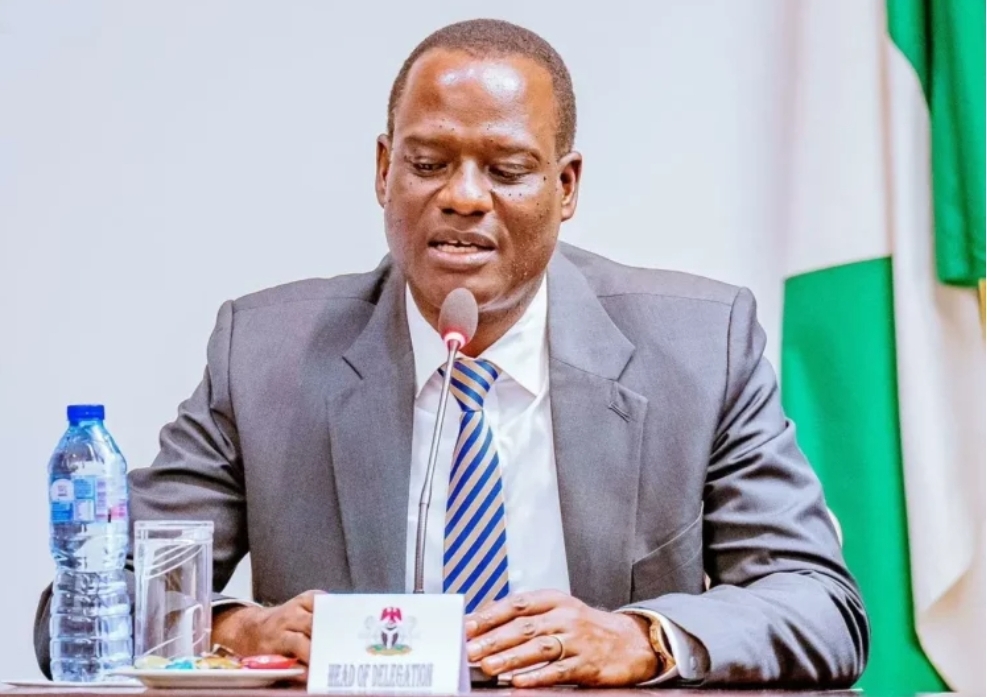Home > Business & Economy > Experts Raise Fresh Concerns Over High C...
Experts Raise Fresh Concerns Over High Corporate Taxes
By AnchorNews | 08 Jul, 2025 05:44:37am | 64

Despite the recent enactment of four new tax laws by President Bola Tinubu’s administration, Nigeria’s ambitious tax reform agenda remains at a critical juncture. Fiscal experts, economists, and private sector stakeholders are warning that without deeper structural reforms—particularly reductions in corporate tax rates and regulatory streamlining—the country’s tax system will continue to fall short.
At the forefront of this concern is Taiwo Oyedele, Chairman of the Presidential Fiscal Policy and Tax Reforms Committee. He cautioned that the benefits of the new tax legislation could be negated if urgent and comprehensive reforms are not implemented.
“We are not done,” Oyedele stated in a commentary earlier this week. “Corporate tax is still too high. We must lower the effective rate on businesses to remain competitive and foster economic growth. Otherwise, we risk taxing capital instead of profit, especially in an economy already burdened by high inflation.”
A Call for Competitiveness
Industry experts echoed Oyedele’s view, noting that while legislative progress has been made, the operating environment for businesses—particularly MSMEs and startups—remains harsh and uncompetitive compared to regional peers like Ghana, Kenya, Egypt, and Rwanda.
In a policy paper titled Designing Tomorrow: Policy Blueprint and Lessons for the Future, Oyedele emphasized the need to reduce corporate tax rates to attract investment and stimulate expansion.
Supporting this call, Prof. Hassan Oaikhenan, an economist at the University of Benin, warned that while Nigeria is focused on increasing non-oil revenues, the current business environment must first be made conducive to growth.
Nigeria’s effective corporate tax rate is estimated at over 35%, one of the highest in sub-Saharan Africa. By contrast, Ghana's rate is 25%, Egypt's ranges between 22.5% and 25%, and Rwanda’s 30% rate is offset by generous incentives and streamlined tax administration.
Business Groups Raise Alarm
The Manufacturers Association of Nigeria (MAN) and the Nigeria Employers’ Consultative Association (NECA) have repeatedly described Nigeria’s tax regime as one of the most unfriendly in Africa.
“Businesses are being suffocated by multiple and excessive taxes,” said Segun Ajayi-Kadir, Director-General of MAN. “The new tax laws still don’t address the core challenge—too many unpredictable taxes at all levels of government.”
NECA added that although the new laws bring clarity and harmonization, they fall short in simplifying tax compliance and eliminating duplication.
Differing Views on Corporate Tax Reduction
However, not all experts agree with calls for immediate tax cuts. A retired Coordinating Director of the Federal Inland Revenue Service (FIRS), Igho Andy Ejemeyovwi, stressed the need to first implement and enforce the existing laws properly.
“Cutting the corporate tax rate drastically isn’t the answer,” Ejemeyovwi said. “Let the new system take effect first. Monitor its impact. Then we can talk about adjustments. Sudden reductions could severely impact government revenue.”
Ejemeyovwi cautioned against over-simplifying the issue, noting that governments rely heavily on tax income to fund essential services.
“If someone who was paying ₦30 billion now pays ₦10 billion, where will the deficit be covered from?” he asked.
Regulatory Burden and Import Tariffs
Oyedele and Oaikhenan also highlighted Nigeria’s overly complex regulatory landscape as a major hurdle to business growth. Oaikhenan noted that excessive levies and bureaucratic red tape often push businesses into informality.
In addition, Nigeria’s import tariffs—especially on industrial inputs and raw materials—remain among the highest in the region, putting local manufacturers at a competitive disadvantage. According to World Bank data cited by Oyedele, Nigeria’s average tariffs on raw materials are nearly double those of its neighbors.
Reform Must Go Beyond Legislation
Experts agree that passing laws alone isn’t sufficient. A broader overhaul of Nigeria’s tax policy, institutional framework, and enforcement mechanisms is urgently needed.
“We need to prioritize implementation, digitalisation, and building tax administration capacity,” said tax consultant Chinedu Okeke.
Oyedele has called for the deployment of digital tax systems to reduce human interference and corruption. He also advocated for the full implementation of the beneficial ownership law to track illicit financial flows.
Small Businesses and Startups Left Behind
Entrepreneurs say the current tax environment stifles innovation. Adetola Adeniyi, a Lagos-based startup founder, said excessive compliance requirements and arbitrary levies discourage business growth.
“You can’t build a digital economy while penalizing innovation,” he said. “Startups end up spending more time avoiding penalties than building products.”
While Nigeria’s Finance Act includes some concessions for small businesses—such as VAT exemptions and reduced corporate tax rates—experts argue these are often undercut by inconsistent enforcement and poor taxpayer awareness.
Aligning Tax with Currency Policy
Oyedele also flagged the inconsistency between tax policy and foreign exchange regulations. He proposed mandating tax payments strictly in naira to reduce pressure on businesses already grappling with dollar scarcity and currency depreciation.
“Tax authorities demanding payments in dollars contradict government efforts to de-dollarize the economy,” he noted.
Looking Ahead: Bold Moves Needed
With the 2025 budget season approaching and mounting fiscal pressures on the federal government, economists are urging a shift from piecemeal fixes to holistic reform.
“Cutting corporate tax, simplifying compliance, and overhauling regulation aren’t just economic reforms—they’re political imperatives,” said an anonymous economist from the Nigerian Economic Summit Group (NESG).
Without bolder reforms, experts warn, Nigeria risks falling behind more business-friendly African economies. Measures such as reducing the corporate tax burden, adopting digital tax systems, improving transparency, and harmonizing tax and forex policies are critical to creating a sustainable, growth-oriented tax system.
“For Nigerian entrepreneurs, manufacturers, and investors, the message is clear: the road to true tax reform is still under construction,” a university lecturer concluded.

Leave a Reply
Your email address will not be published. Required fields are marked *
Category
 Sports
Sports  Crime & Security
Crime & Security Technology
Technology Business & Economy
Business & Economy Entertainment
Entertainment Education
Education  Religion
Religion  Opinion
Opinion.jpeg) Interviews
Interviews News
News Politics
Politics Culture & Tourism
Culture & Tourism Health
Health